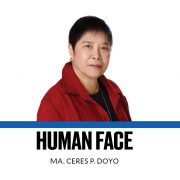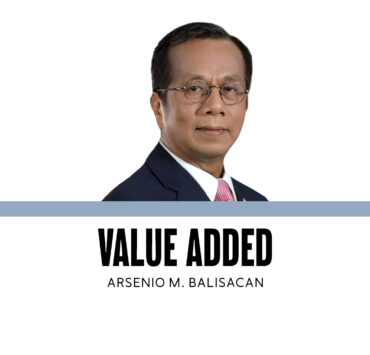From Isabela to Texas: A Filipino educator’s plea

At Manor New Tech Middle School in Manor, Texas, students navigate bright hallways, with iPads and interactive platforms designed for personalized learning. Ali, once Cagayan Valley’s Most Outstanding School Paper Adviser and a Ten Outstanding Students of the Philippines alumnus, now guides these students through Project-Based Learning in a well-run Travis County district.
Ali’s classroom experience in Texas sharply contrasts with his decade in Philippine schools. The United States boasts a 77-percent reading proficiency among 15 million high school students, while the Philippines faces a literacy crisis: 5.58 million Filipino high schoolers are not functionally literate.
In Manor ISD, systems run smoothly. From hiring to payroll—it’s all fast and organized. Teachers receive prompt training, efficient health care, paid leave, and fair pay—real recognition for their efforts. It all seems like a dream, Ali thinks. “These experiences enrich my life beyond teaching,” he tells himself.
Platforms like ClassLink and Incident IQ streamline digital learning, and IT support uplifts education at MISD. Ali’s district laptop hosts 60 apps—from BookNook to i-Ready—turning learning into a tech-savvy adventure. Sports facilities rival professional gyms, with indoor/outdoor fields and a choir hall with million-dollar instruments. Students enjoy free trips to Nasa and Austin’s Thinkery Children’s Museum. “It’s like driving a sleek electric car after riding a dusty bicycle,” Ali marvels of the features that highlight the gulf between the two countries’ educational facilities.
Ali recalls surviving on an allowance of P5 to P10 a day. Here, students get free breakfast and lunch in an architect-designed cafeteria. They also receive free workbooks, costumes, school supplies, sports gear, and equipment—things Ali had only dreamed of. Manor’s Whole Child department safeguards student welfare with dental care, youth advocacy, and strong community support. A recent mental health fair drew over 100 sponsors, triple what Ali had witnessed in the past.
American schools have fewer contests but offer authentic electives with hands-on learning and career prep. After-school programs mentor first-generation students with individualized and multitier support. Classes focus on core subjects and a few electives, prioritizing quality. Fridays celebrate student progress with tickets for good work, redeemable for treats and activities. Recognition goes beyond grades—celebrating growth and unique talents.
Unlike Philippine marathon exams, students take focused, computer-based tests with constructed responses like the State of Texas Assessments of Academic Readiness (STAAR), supported by interim checks for quick teacher action. “Results come back fast,” Ali notes. Students also take readiness tests like the Texas Success Initiative (TSI) for eighth grade, with prompt results. Parents receive detailed, real-time reports on their children’s strengths and weaknesses—a personal coach for every student.
Ali praises the US schools’ commitment to diversity and inclusivity, where every student thrives regardless of background or ability. Special education is fully integrated with resource teachers, therapists, interventionists, and frequent parent conferences. Apps like StudySync reflect cultural diversity and provide strong English as a Second Language (ESL) support with multiple languages and levels that cater to varied learning needs. “This approach helps me bring a world of perspectives into the classroom, much like the diverse students I have taught,” he adds.
But despite its challenges, Ali realizes the lasting values taught in Philippines schools: discipline, respect, and community spirit, and notes that “discipline and respect are the bedrock of learning.” He also acknowledges that though student rights and active participation in the US can sometimes present challenges in maintaining authority, when managed well, they promote meaningful dialogue and mutual respect.
“Revitalizing Philippine schools means restoring respect and discipline, creating a supportive environment where both students and teachers can thrive, and complementing ongoing improvements in facilities and curricula,” he says.
Ali’s journey from Luna, Isabela, to Manor, Texas, highlights the Filipino students’ potential and urgent need for systemic change. The 2025–2026 school year is at a crossroads: without decisive action—upgrading infrastructure, modernizing curricula, improving teacher welfare, and bridging the digital divide—the Philippines risks falling behind further.
“The future depends on the education we give our children today. We owe it to them—to dream big, learn deeply, and thrive globally like me,” he concludes with hope and resolve.
—————-
Alejandro “Ali” C. Rodriguez is an educator and writer with 13 years of experience in literacy, journalism, and leadership across the Philippines and the United States. An alumnus of the Ten Outstanding Students of the Philippines 2011, he excels in culturally responsive teaching, Project-Based Learning, and supporting underserved and ESL learners.

















